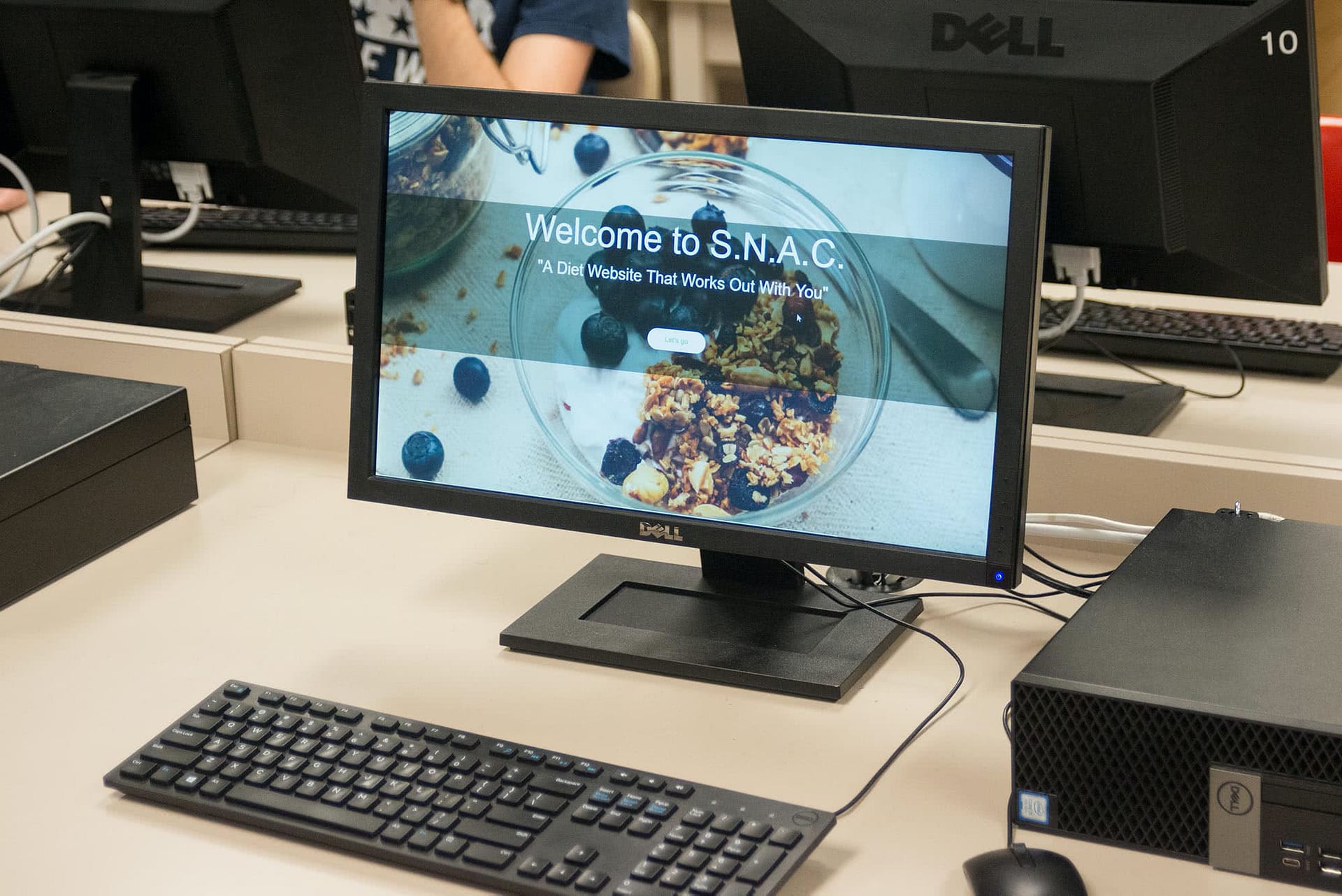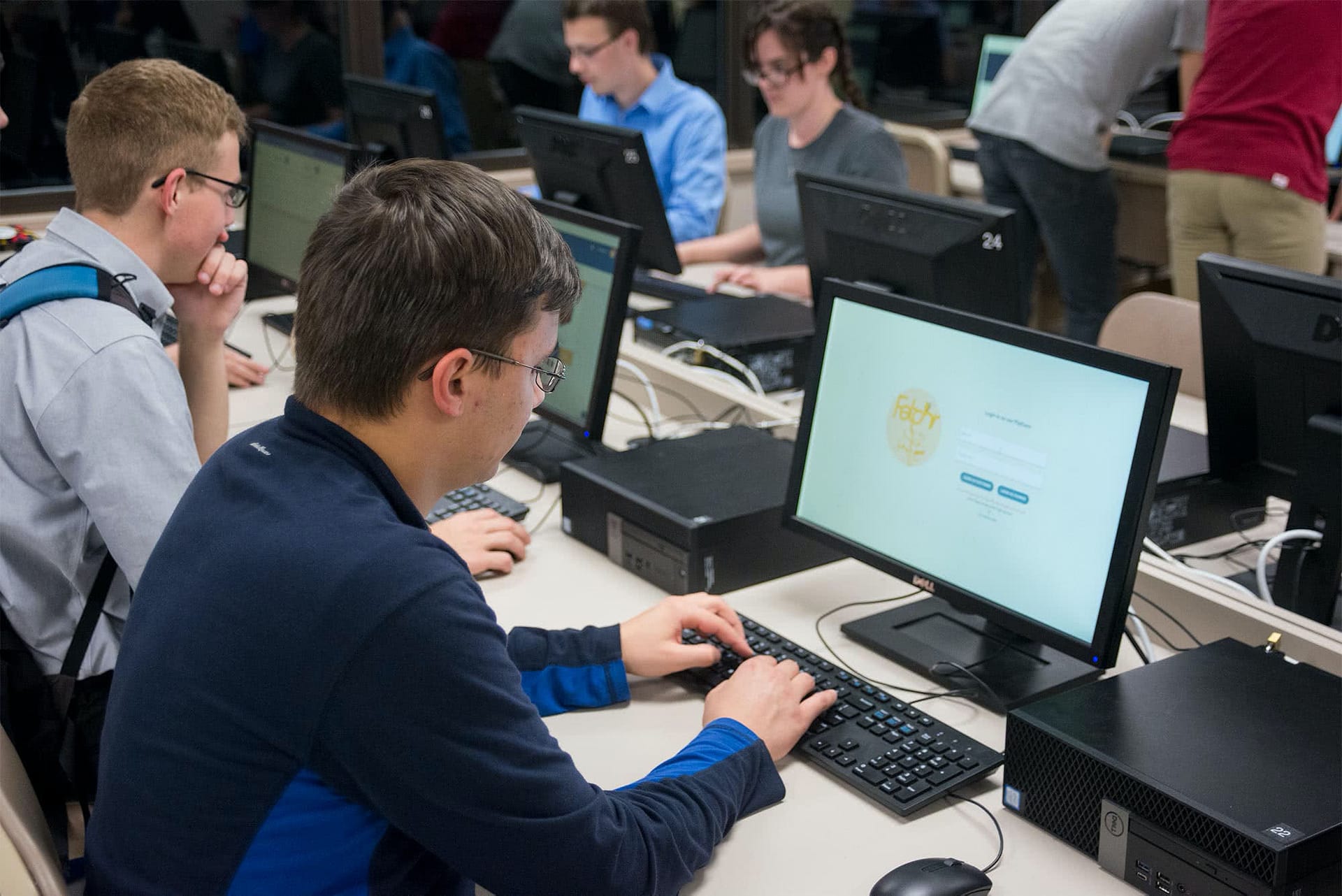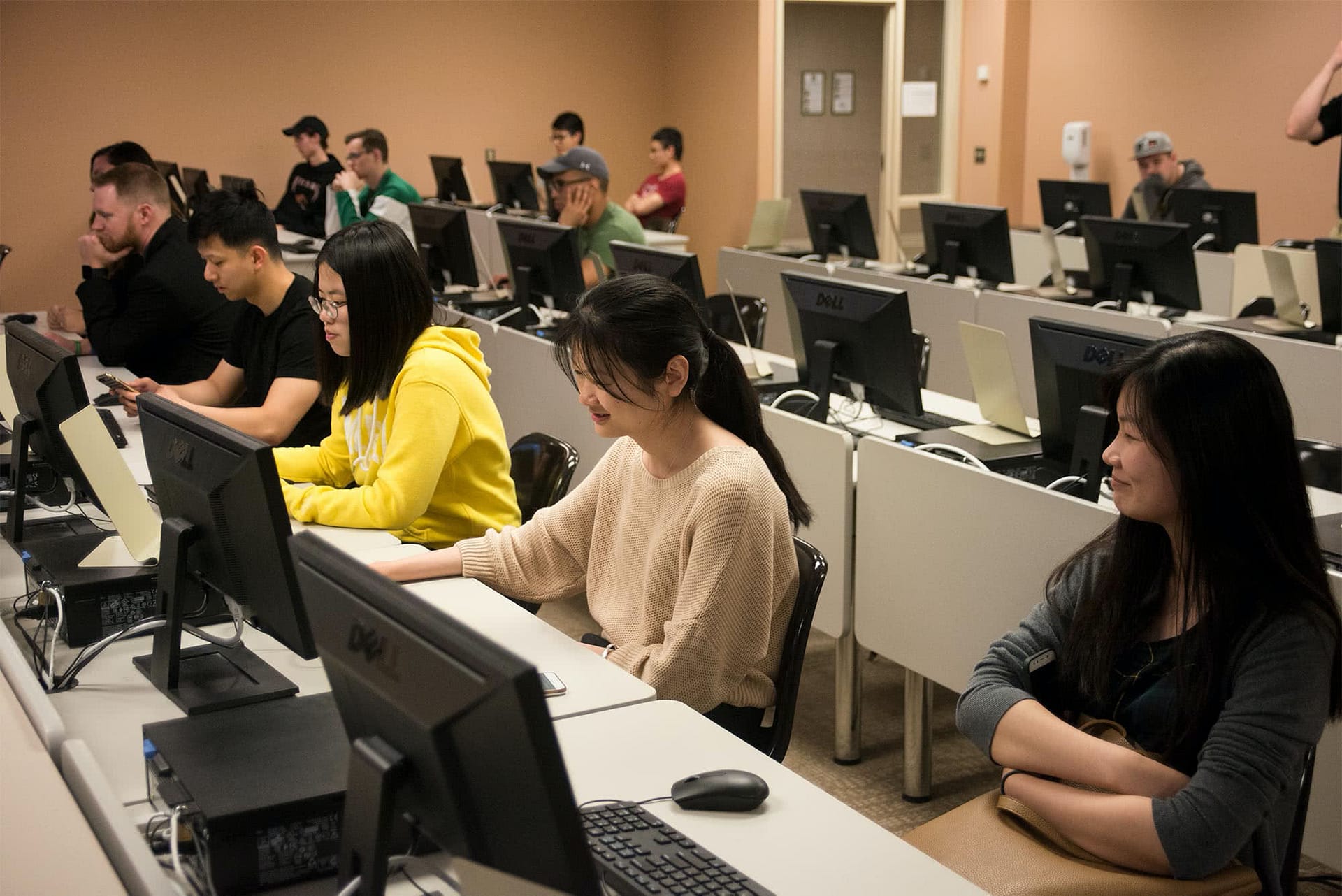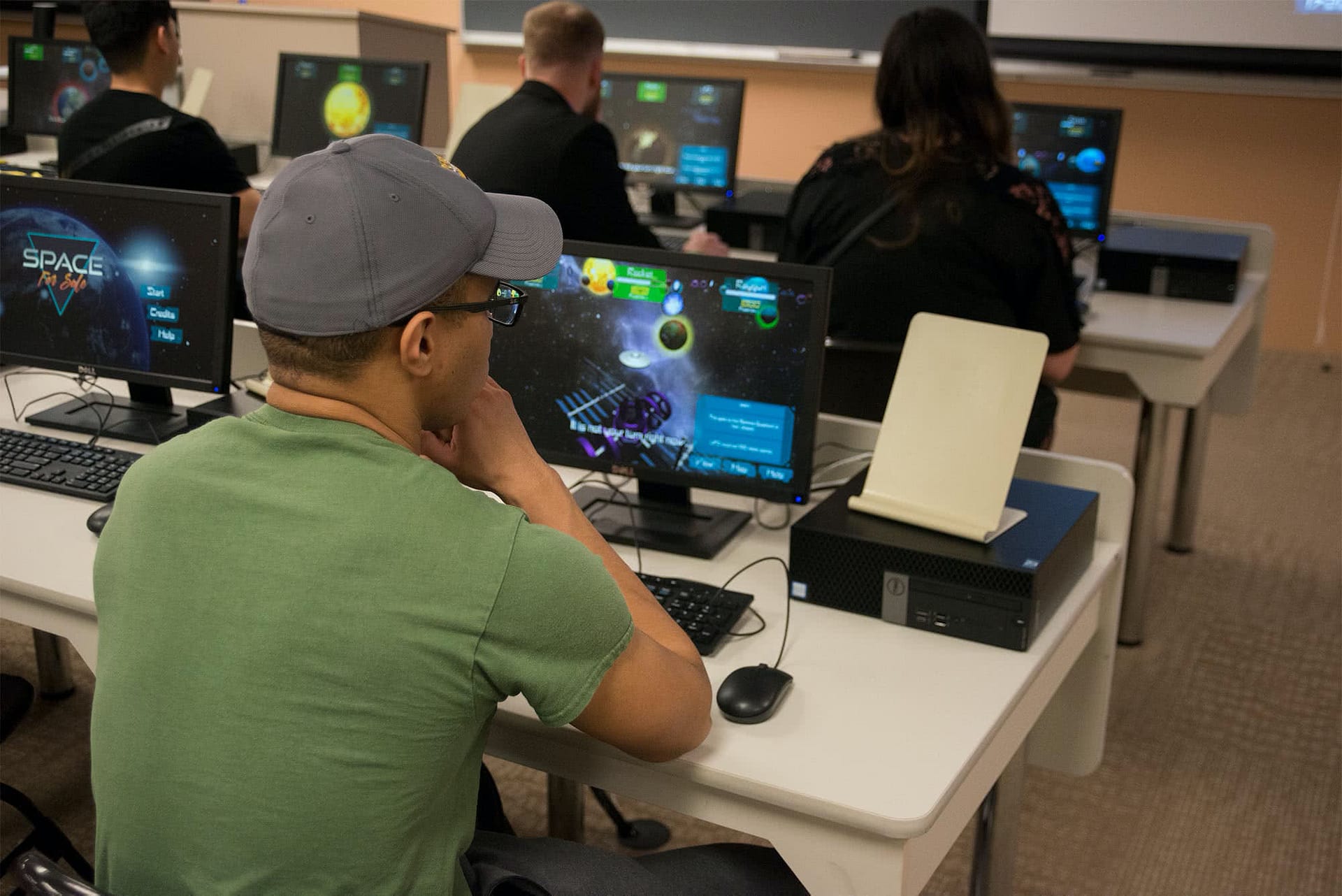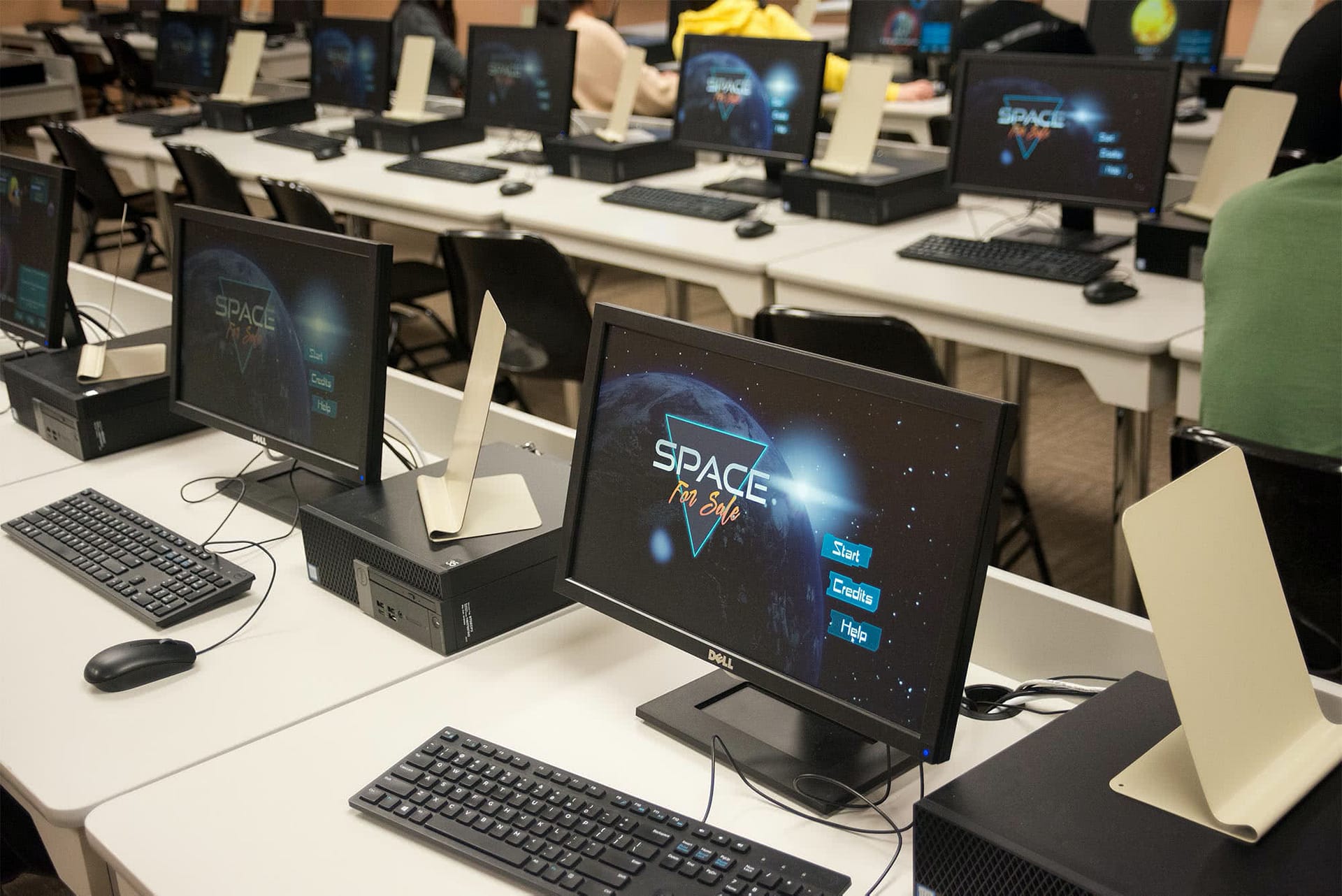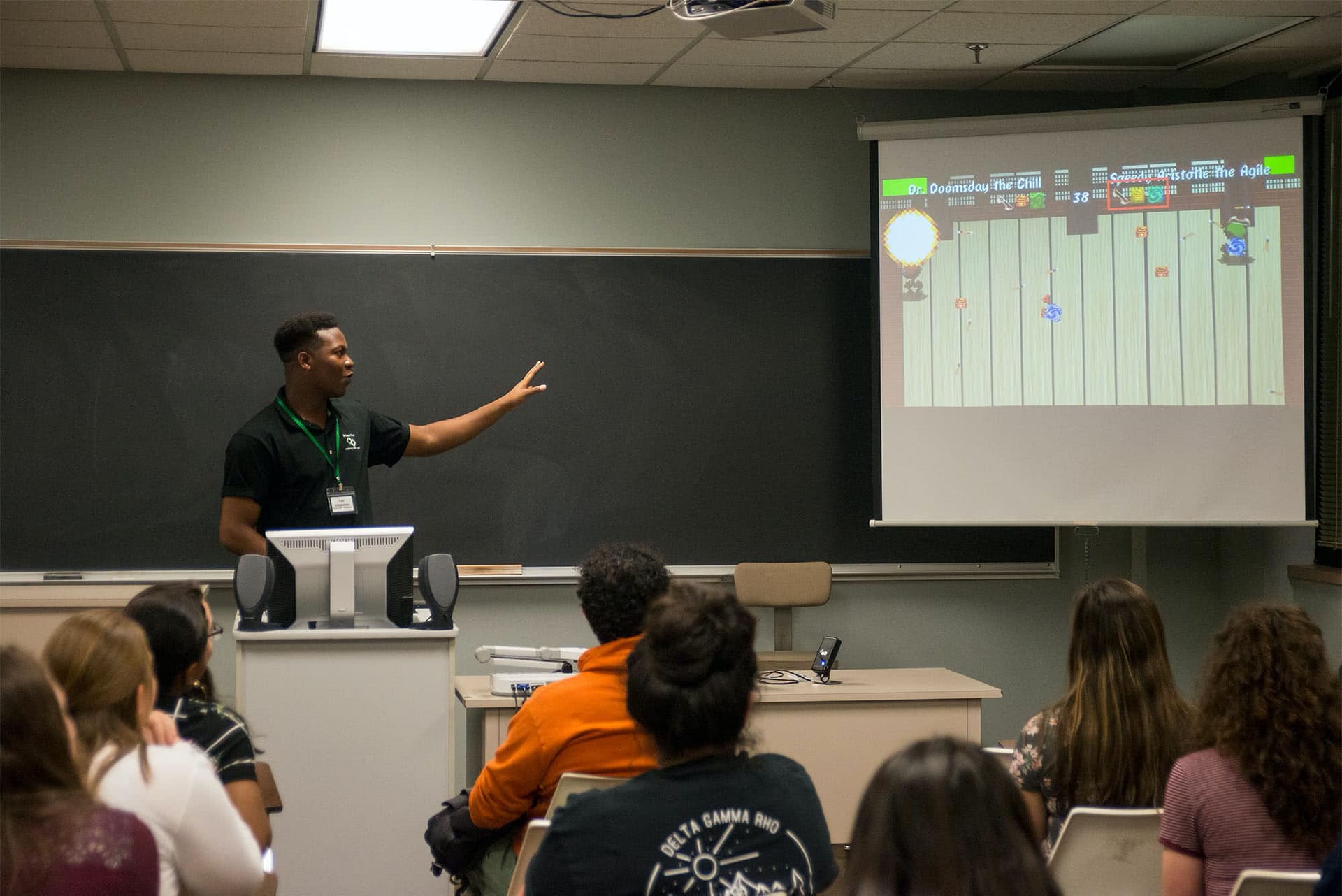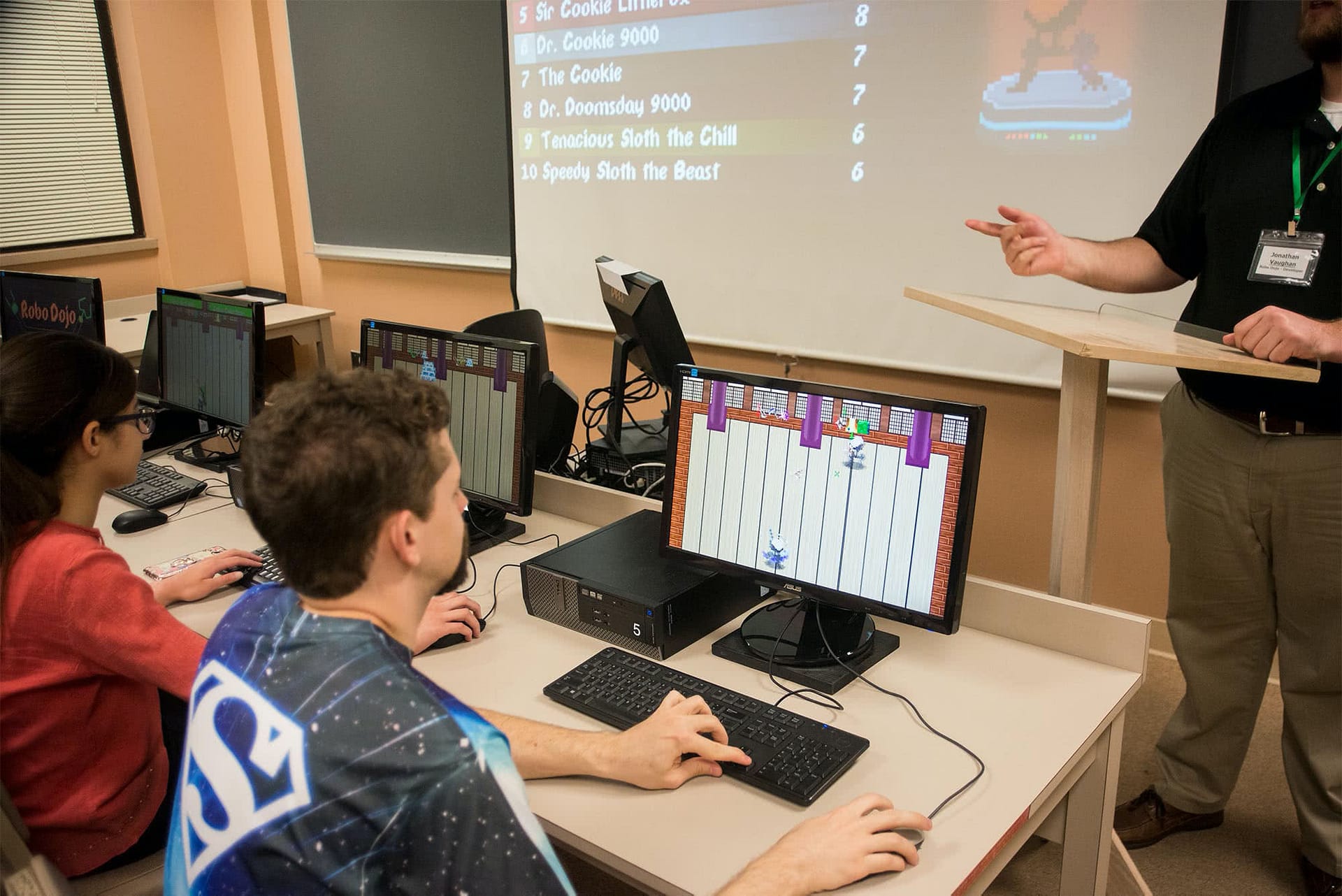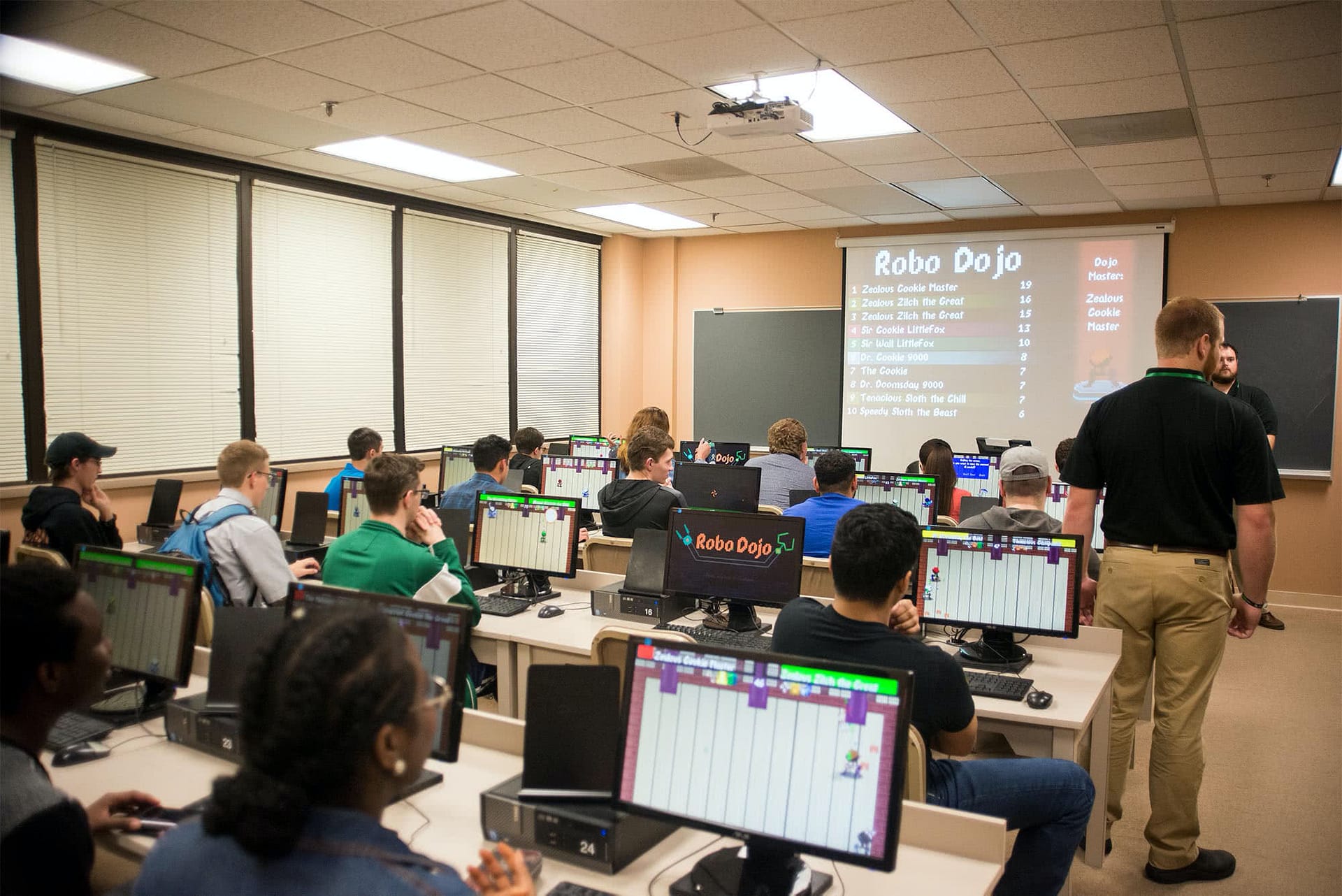In a collection of rooms on the second floor of the Academic Center, virtual robots trained for battle, extraterrestrial real estate was purchased, a day’s worth of calories was calculated, and delivery orders were issued and completed. It sounds odd to find these things in one place, except all took place during the Software Expo at Pensacola Christian College.

The Software Expo, a capstone project for senior computer science and software engineering students enrolled in CS 451 (fall) and CS 452 (spring), gives teams the opportunity to work on and complete software as though they were employed by Dr. Michael Geary, the class teacher and “CEO” of Software Expo Incorporated. Over the course of the school year, each of the four teams developed software programs that were either original or curated and expounded upon from a list of ideas in the fall. They then showcased the completed programs in the spring. Each program, started and finished in its entirety by the student teams, was designed with their target audience in mind—PCC’s student body.
“Senior computer science and software engineering students receive realistic and practical experience at an official demo/release of their software products,” said Dr. Geary. “This exposes them to the necessary planning, anticipation (i.e., stress), and deadlines for an event of this type, not to mention the satisfaction of accomplishing a task like this.”

Throughout the process, Project Manager Briton Kelley (Sr., ME) helped each team with issues and worked as a go-between with the team leaders and Dr. Geary. “The teams have a yearlong process of developing and preparing their applications to display,” Briton explained. “They get to experience really for the first time a team-driven project. Most of the work in preparing the Expo is done by our expo coordinator/assistant project manager.”
“Students can expect two games and two websites,” said Trevor Kirby (Sr., AZ), the Expo Coordinator and Assistant Project Manager ahead of the event. “Students can also expect a presentation that will explain how to use the projects. We recommend they visit this first.”
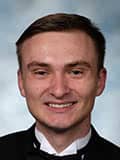
Ryan Shrewsbury’s (Sr., WV) team developed the game Space for Sale, a fast-paced, monopoly-style planet purchasing game. “We wanted to take a different approach to the board design from the standard linear Monopoly board, so we designed a board with separate ‘loops’ in them that a player can enter at random,” he said. “The biggest problem though was by far the networking. Being a multiplayer game, certain things had to happen for everyone who was playing the game, and certain things needed to be synchronized across players like whose turn it was [and] who owns each planet.”

Daniel Austin’s (Sr., VA) team worked on S.N.A.C. (Simple Nutritional Allergen Check), a dietary website that helps users to develop and track their dietary goals. “This project was meant to be something simple and practical for the student body,” he said. “One of our problems starting out was finding out how to format the dining menu with things like serving size, calorie count, allergens, and other nutritional facts. We had over 3,000 entries alone and trying to get the data for that was a daunting task.”
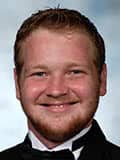
Lloyd Bower’s (Sr., IN) team worked on Robo Dojo, a game where players trained their virtual, 16-bit, AI robot to be the best bot to battle in the arena! “We decided to make a game. That decision led us to several decisions about what kind of game would best represent the AI,” he said. “Most serious projects involving artificial intelligence require a lot of time, more time than we had. Because of this, we decided to make something with a simpler approach and something students would enjoy. We started our journey with a test project of making a bot that could play Rock-Paper-Scissors. This test project gave us enough data to know how much we could expect to accomplish in our given time frame.”
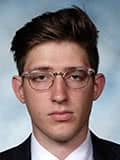
The final team, led by Dave Safanyuk (Sr., PA), developed Fetchr: From Store to Door. The platform let students order various items from local, off-campus businesses and allowed other students to earn money to deliver those items to their rooms.
This year’s Expo saw success over the three days they presented, seeing nearly 600 people attend including faculty, staff, administrators, students, and guests. “All those I talked to that came to the Expo this year really enjoyed it and were impressed with the software,” Briton said. “Many people stayed for a long period of time and continued to play the games over and over again, and also many people mentioned they wished the productivity applications (S.N.A.C. and Fetchr) were actually going to be implemented to be used on campus.”
In the past, Software Expo has seen various other types of games and programs be showcased to the student body. “Teams have developed games based on checkers, Settlers of Catan, and Monopoly as well as their own creative inventions (sea-based battles, island adventures, etc.). Teams have created productivity software such as grade books, ticket distribution, calendar scheduling, and vehicle parking” said Dr. Geary. “Even more, teams have created many projects based on on-campus needs, such as online ordering for The Grille, Papa Johns, and Common Grounds, class evaluations, and check sheets.”
As a capstone project for computer science students, Software Expo has always been an anticipated event—both by those who attend as well as for those who are presenting. “It is always a great feeling to have someone enjoy something that you have made,” said Trevor.

